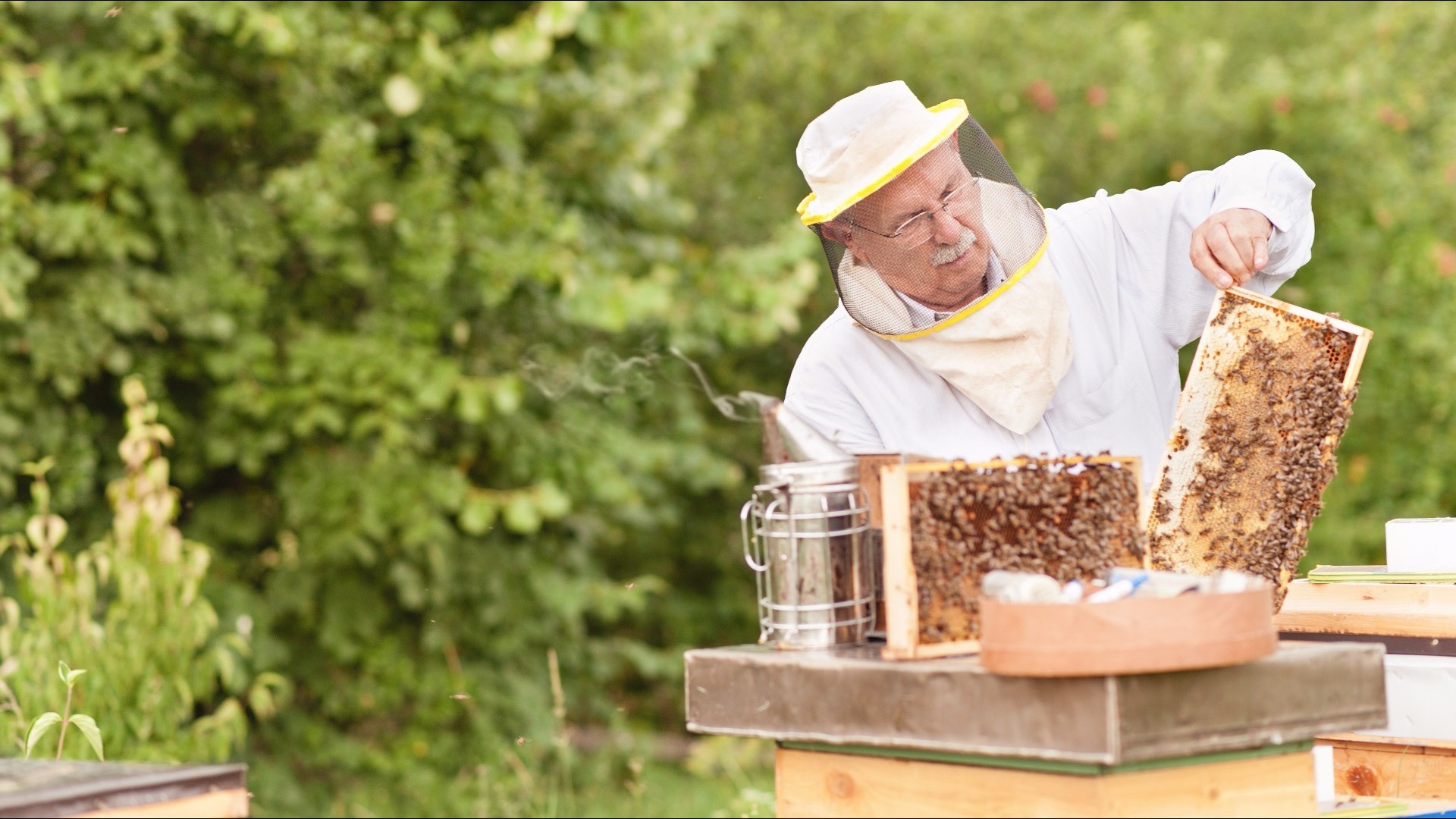ATHENS, Ga. — A groundbreaking project based at the University of Georgia may save the honeybee. Researchers said it’s a breakthrough that could have implications for food sources worldwide.
UGA entomologist Keith Delaplane is among the beekeepers who have fretted for years over declining honeybee populations.
"We know what’s killing bees," Delaplane said Friday. "The problems facing honeybees are pretty much universal."
Those concerns include commercial pesticides, climate change and a nasty disease called American Foulbrood, which is a worldwide killer of honeybees.
"It is, historically, the worst honeybee disease of all," Dr. Delaplane said.
Since honeybees are pollinators, their decline threatens plants, which threatens the food supply.
"When we’re losing plants, we’re losing the planet. And it becomes uninhabitable," said Annette Kleiser, scientist and CEO of Dalan Animal Health. "And it all starts with the honeybee. It's a critical component for our survival."
Her company, Dalan Animal Health, has developed a vaccine for the disease. UGA has tested it – giving the vaccine orally to countless queen bees – which have passed on the immunity to the rest of their hives.
Researchers said it is a landmark breakthrough for honeybees.
"By vaccinating one insect, you get the whole hive vaccinated," Delaplane said, adding that the US government approved the use of the vaccine in late 2022. "It’s not just a new tool. It’s a new category of tool."
Kleiser said her company would start shipping vaccines to beekeepers in North America this spring.
"It’s a huge deal," she said. "It's saving the world."

